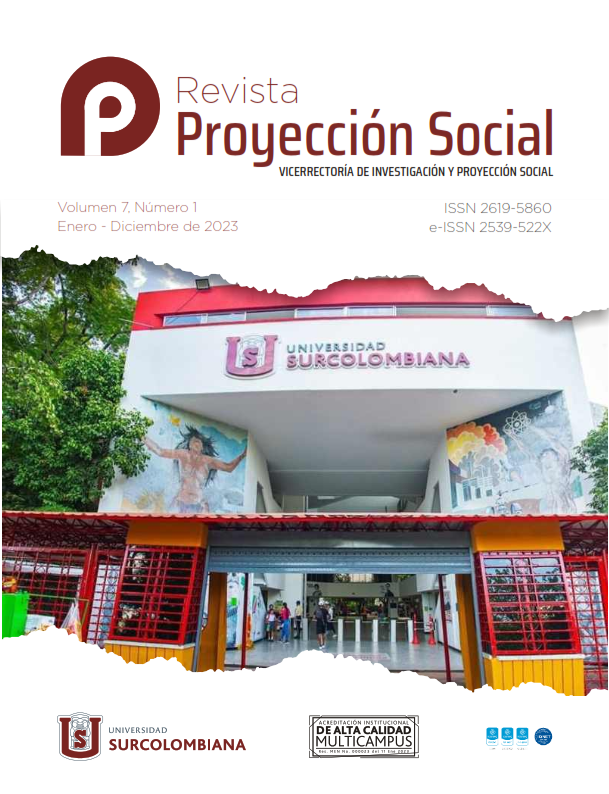The chronicle: a wound in the time
##plugins.themes.bootstrap3.article.main##
“Erasing me from the media they can, physically eliminating me as well. What they won't be able to do is deny the existence of this story, take away my voice and my words. As long as I live, I will continue writing, and with what I write, I will continue living.” Excerpt from the book “Memorias de una infamia”, Lydia Cacho, 2007.
This document addresses reflections, theoretical knowledge, and the systematization of writing for the reconstruction of memory, through journalistic and literary genres: the profile or character chronicle. It also conceptualizes and argues some critical positions regarding Latin American chronicles and their role in the media dispute for hegemonic power. It also mentions some chronicles who have written and deposited in the world's memory the stories of anonymous individuals, for example: Martín Caparrós, Alfredo
Molano, Marcela Turati, Daniela Rea, Lydia Cacho, Alberto Salcedo Ramos, Ander Izaguirre, Leila Guerriero, Julio Villanueva Chang, among others.
Furthermore, the document includes a chronicle as an exercise in social immersion and writing, during the course “Text Production” with Professor Yolanda Díaz Rosero at the South Colombian University. The chronicle narrates the life of Blanca Aurora Romero, one of the founding women of the Las Palmas neighborhood in Commune 10, municipality of Neiva. Her story is marked by the countryside and the city; the love and betrayal of Farid Silva; the violence of gangs, informal economy and guerrillas; the hope of
building her own house, dreams, music and dance; the death of her loved ones and the murder of people by paramilitaries in Las Palmas; resilience in life; recycling as forced labor in old age, poverty and hunger. “There are so many stories that peek around the corners, because on every street Blanca has a word, a kiss,
a fall, a death, a gunshot, a stab.”
Downloads
##plugins.themes.bootstrap3.article.details##
Abad, M. (19 de junio de 2015). Julio Villanueva Chang: "un editor es un ignorante experto en preguntar". Yorokobu.
%A1genes%20m%C3%A1s%20justas%C2%BB.
Aguilar, M. (2010). Escribir para no olvidar. En Aguilar, M. (Ed.). Domadores de historias. Conversaciones con grandes cronistas de América Latina (p.9-11). RIL Editores.
Bernabé, M. (3 de febrero de 2016). Las viejas narrativas del presente. Anfibia. https://www.revistaanfibia.com/lasviejas-narrativas-del-presente/
Budasoff, E. (25 de noviembre de 2015). El señor de las papas.Periodismo narrativo en Latinoamérica. https://cronicas periodisticas.wordpress.com/2015/11/25/el-senor-de-laspapas/
Caparrós, M. (2012). Por la crónica. En Agudelo, D. (Ed.). Antología de crónica latinoamericana actual (p.607-612).
Alfaguara.
Caparrós, M. (2015). Lacrónica. Círculo de Tiza.
Carrión, J. (2012). Prólogo: mejor que real. En Carrión, J. (Ed.). Mejor que ficción (p.13-43). Anagrama.
Correa, C. (2017). Narradores del Caos. Las apuestas de la crónica latinoamericana contemporánea. EAFIT.
Egan, L. (2008). Carlos Monsiváis. Cultura y crónica en el México contemporáneo. Fondo de Cultura Económica.
Izaguirre, A. (26 de marzo de 2014). Así se fabrican guerrilleros muertos. El País. https://elpais.com/elpais/2014/03/06/
planeta_futuro/1394130939_118854.html
Molano, A. (31 de octubre de 2019). Discurso de Alfredo Molano al recibir el premio Nacional Simón Bolívar. Comisión
Intereclesial de Justicia y Paz. https://www.justiciaypazcolombia.com/discurso-de-alfredo-molano-al-recibir-elpremio-nacional-simon-bolivar/
Reguillo, R. (2007). Textos fronterizos. La crónica una escritura a la intemperie. En Falbo, G. (Ed.). Tras las huellas de una escritura en tránsito. La crónica contemporánea en América Latina. (p.41-50). Al margen.
Salcedo, R. (2017). Alberto Salcedo Ramos. El rescatista de náufragos. En Correa, C. (Ed.). Narradores del Caos. Las
apuestas de la crónica latinoamericana contemporánea. (p.223-233). EAFIT.
Turati, M. y Rea, D. (2012). Nota de las editoras. En Turati, M. y Rea, D. (Eds.). Entre las cenizas. Historias de vida en tiempos de muerte. (p.9-11). Sur+Ediciones.
Villoro, J. (2005). Ornitorrincos. Notas sobre la crónica. En Villoro, J. (Ed.). Safari accidental (p.11-17). Joaquín Mortiz.



